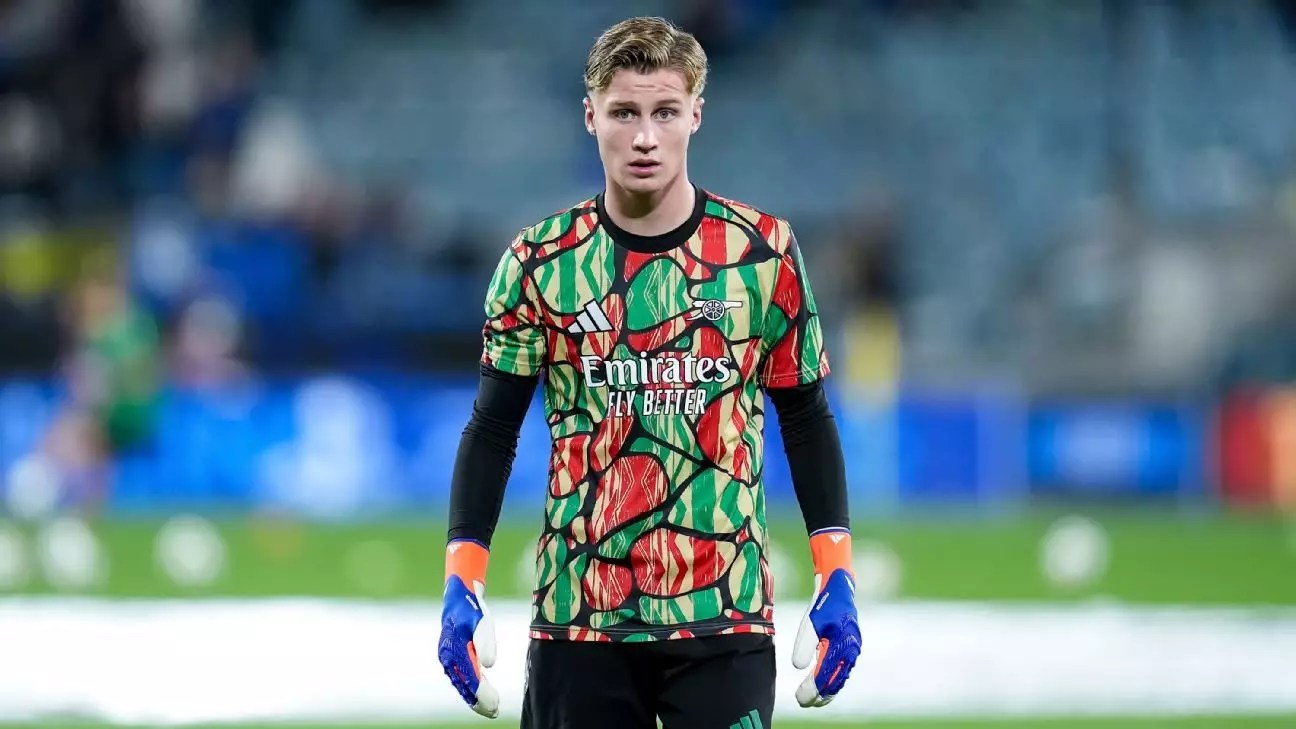In a remarkable turn of events, Arsenal Football Club has witnessed the emergence of 16-year-old goalkeeper Jack Porter, who made history by becoming the youngest player to start a first-team match for the Gunners. Porter’s debut came amid a 5-1 victory against Bolton in the Carabao Cup, a match that not only symbolizes the club’s ongoing focus on youth development but also foreshadows a promising future.
Porter’s achievement surpasses that of Cesc Fabregas, a revered figure in Arsenal’s history who previously held the record. The young goalkeeper’s age at the time of his debut was 16 years and 72 days, compared to Fabregas’s 16 years and 177 days during his first appearance in 2003. This transition marks a significant milestone in the club’s tradition of integrating young players into the first team.
The decision to start Porter stemmed from unfortunate circumstances surrounding first-choice goalkeeper David Raya, who was sidelined due to a thigh injury sustained during the team’s recent match with Manchester City. With delays in securing backup options, including Neto—a summer loan signing who couldn’t play due to being cup-tied—and Tommy Setford, another young goalkeeper, also injured, head coach Mikel Arteta had little choice but to call upon Porter.
Porter’s journey reflects the uncertainty many young athletes face. Having only turned 16 in July, the young shot-stopper had trained occasionally with the first team and had begun to break into the senior setup by being named among the substitutes for Arsenal’s previous Champions League match against Atalanta. However, one must question whether such a rapid elevation into a first-team role is sustainable and whether it puts undue pressure on a teenager still in the formative stages of his career.
The club’s decision-making process regarding goalkeeping reflects broader patterns in player management within elite sports organizations. Reports suggest that Arsenal had been active in the transfer market to secure experienced goalkeepers before ultimately settling for Porter. This indicates a lack of foresight in the club’s planning, having allowed Aaron Ramsdale and Karl Hein to leave without adequate replacements lined up. The pursuit of goalkeepers like Joan García from Espanyol and Dan Bentley from Wolves highlights the frantic attempts to solidify a foundational position like that of goalkeeper.
While Arteta’s decision to integrate young talents like Porter may signal an audacious, long-term strategy, it could also expose the team to added risk. Although the emergence of players like Ethan Nwaneri and Miles Lewis-Skelly—who participated in the same match—is commendable, such experiences must be managed carefully to avoid overwhelming these young prospects.
Looking ahead, the pressure rests on Porter to continue developing amidst the spotlight of first-team football. His debut may be a pivotal moment for both the player and the club, but it’s essential for Arsenal to support their young talent’s growth, ensuring he thrives rather than falters under expectations. The convergence of youth talent and high-stakes competition could indeed pave the way for a new era in Arsenal’s storied goalkeeping history, one that fans and critics alike will be watching closely.
As Jack Porter embarks on his career, both the challenges and opportunities he faces will define not just his individual legacy, but also that of a club eager to reclaim its former glory through a commitment to nurturing homegrown talent.


Leave a Reply